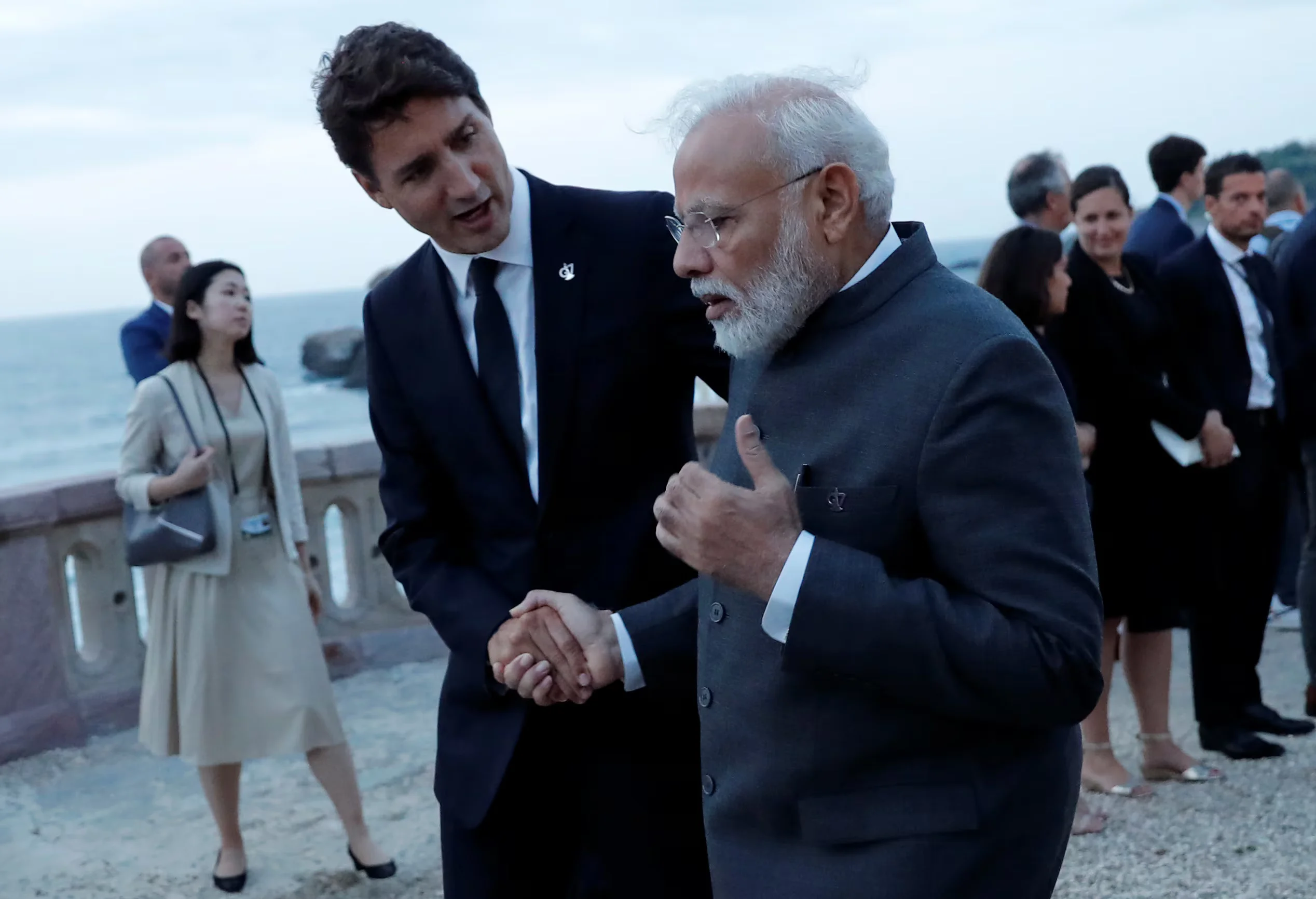Canada’s deepening dispute with India centers on its alleged campaign of violence against Sikhs in Canada. This conflict could intensify threats of Indian-based cyber espionage. It may also hold back immigration. However, analysts and experts see no immediate impact on trade.
Concern about a widening rift between the two countries has emerged. This concern follows a statement from a senior Canadian official. The official told a parliamentary national security committee on Tuesday that Indian Minister of Home Affairs Amit Shah, a close ally of Prime Minister Narendra Modi, was the mastermind behind the alleged plots.
Indian officials dismissed the official’s statement. The disclosure might worsen a dispute that started a year ago. Prime Minister Justin Trudeau cited credible evidence linking Indian agents to the June 2023 shooting of Sikh leader Hardeep Singh Nijjar in British Columbia.
In response, Canada expelled six Indian diplomats earlier this month, accusing them of involvement. Four men have been charged with his murder.
Cyber Threats and National Security
The Canadian signals intelligence agency that monitors foreign-based cyber threats said New Delhi was most likely already conducting threatening cyber activity against Canadian networks for spying purposes.
“As Canada and India potentially have some tensions, it is possible that India may want to flex those cyber threat actions against Canadians,” Caroline Xavier said. She is the head of the agency known as Communications Security Establishment Canada. She spoke at a Wednesday press conference. The agency has previously described India as an emerging threat.
In the current climate, the presence of cyber threats is a growing concern, particularly as diplomatic tensions escalate. Experts warn that these cyber threats could target critical infrastructure and sensitive data within Canada.
Also See: India and Canada see no impact on trade ties from diplomatic spat
Diplomatic Developments
On the diplomatic front, Ottawa is unlikely to take more punitive steps until more details of the Nijjar case emerge, said Vina Nadjibulla, vice president of the Asia Pacific Foundation of Canada think tank.
Cabinet ministers are due to testify about the matter to the national security committee and the murder trial of the four men has yet to start, she noted.
“If authorities lay charges against individuals living in India at any level, they will trigger an extradition process that could take years. And of course, India is unlikely to cooperate,” she said.
Officials working for Trudeau and Foreign Minister Melanie Joly did not respond to requests for comment about what steps Ottawa might take next.
India is the top source for temporary foreign workers and international students coming to Canada but a backlog of applications has built since Trudeau’s allegations last year.
Canada only has four immigration officials left in India, down from 27 in October 2023. Consequently, this situation affects Canada’s ability to process visas on-site, Immigration Minister Marc Miller said.
“I have told my colleagues in Parliament that this could get worse before it gets better, and they need to brace for it,” he said in an interview last Friday.
That could mean fewer people traveling between the countries for legitimate reasons, he said.
TRADE RELATIONS
India is Canada’s 10th largest trading partner and New Delhi has made clear it does not want flows to be hit. Nadjibulla’s foundation carried out a study showing Trudeau’s statement in October 2023 had little or no effect on bilateral trade.
“Whether that would be the case now I think it’s a bigger question mark, because the disruption is on a bigger scale, and we are still not, I don’t believe, at the bottom of this,” she said by phone.
Canada is the biggest exporter of pulses, such as lentils, to India. Pulse Canada President Greg Cherewyk, asked about the potential impact of the diplomatic dispute, cited the strength of the relationship.
“In a time of stubborn food price inflation and strong demand for pulse crops, we are confident that affordability and availability will continue to drive decision-making at a government level,” he said in a statement.
“We have thankfully not seen the political tensions affect trade,” said Michael Harvey. He is the executive director of the Canadian Agri-Food Trade Alliance. “India and Canada have great potential in their trading relationship. CAFTA hopes we can work back to positive trade discussions.”
This news is sourced from Reuters and is intended for informational purposes only.


![Ukrainian and Russian flags with soldier silhouettes representing ongoing conflict. [Image via Atlantic Council].](https://southasiatimes.org/wp-content/uploads/2026/02/2022-02-09T000000Z_1319661209_MT1NURPHO000HXCNME_RTRMADP_3_UKRAINE-CONFLICT-STOCK-PICTURES-scaled-e1661353077377.jpg)



![Truck traveling along the Makran Coastal Highway in Balochistan, with rugged cliffs and the Arabian Sea coastline in the background [Image via Getty Images].](https://southasiatimes.org/wp-content/uploads/2026/02/Balochistan-2.webp)